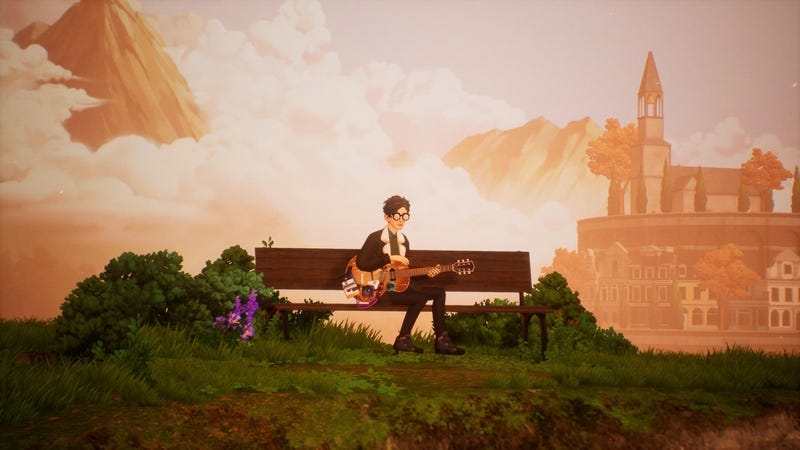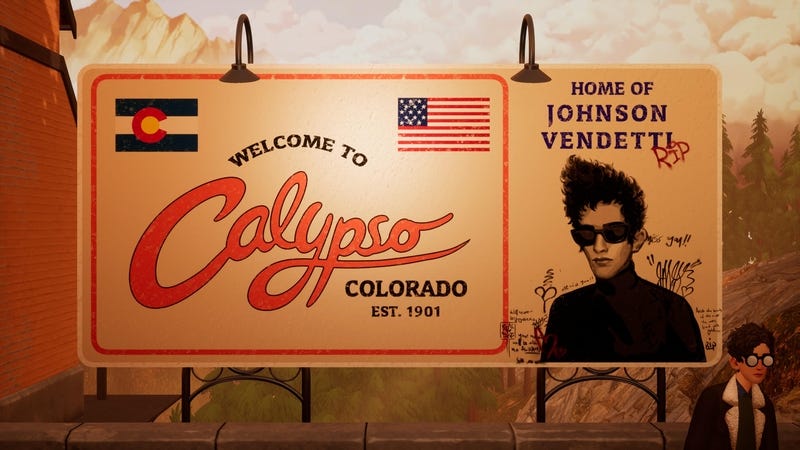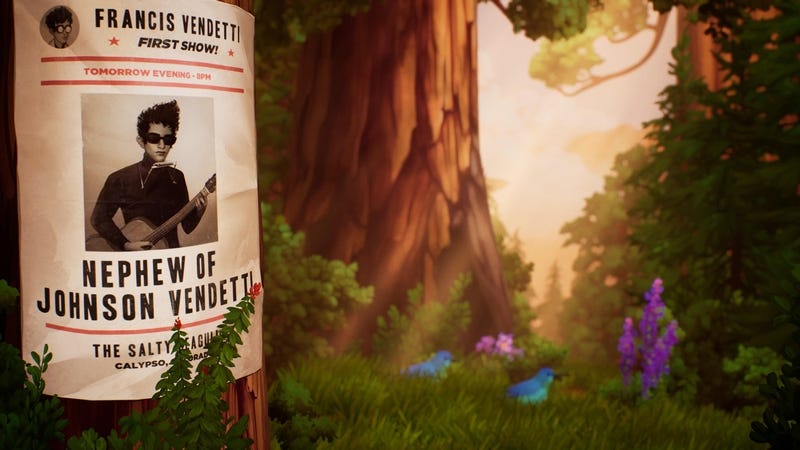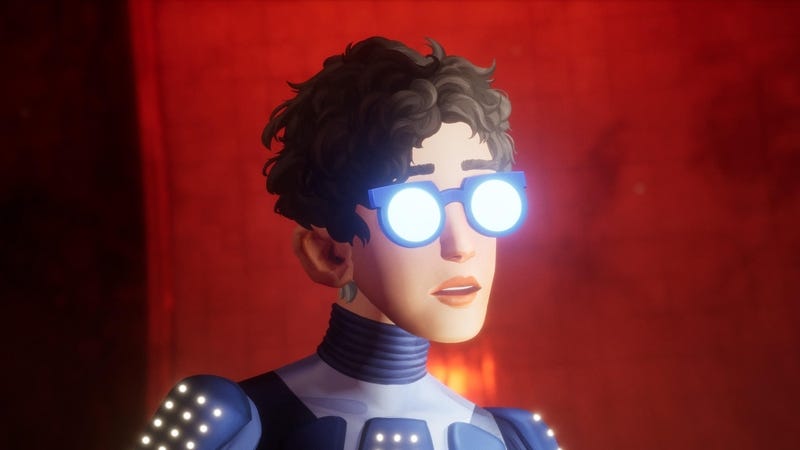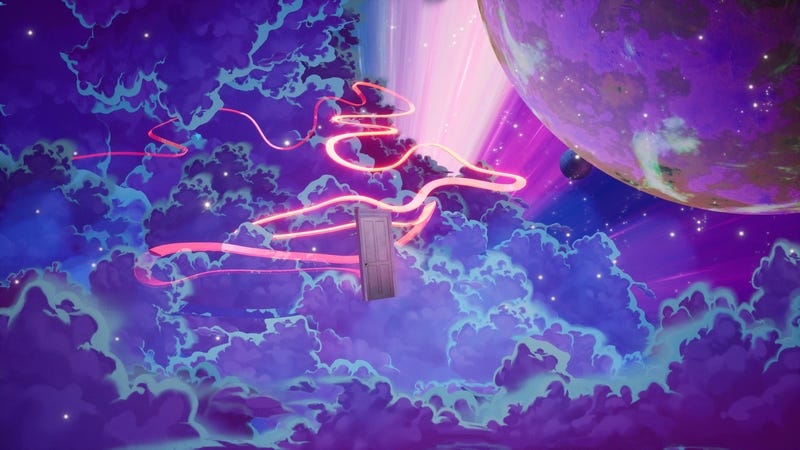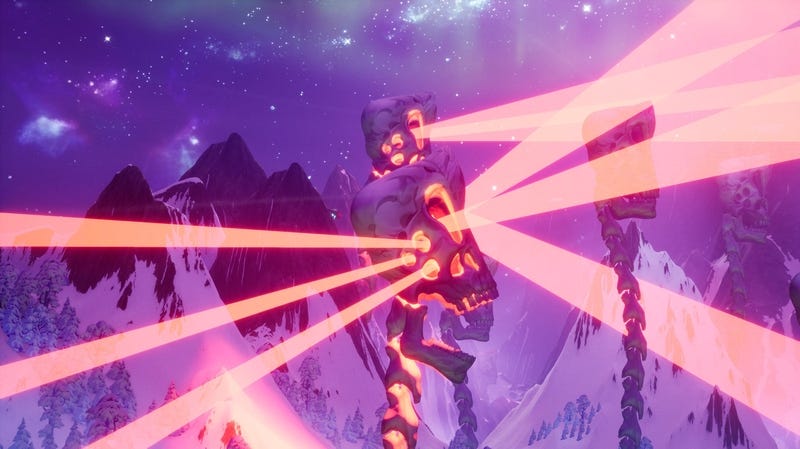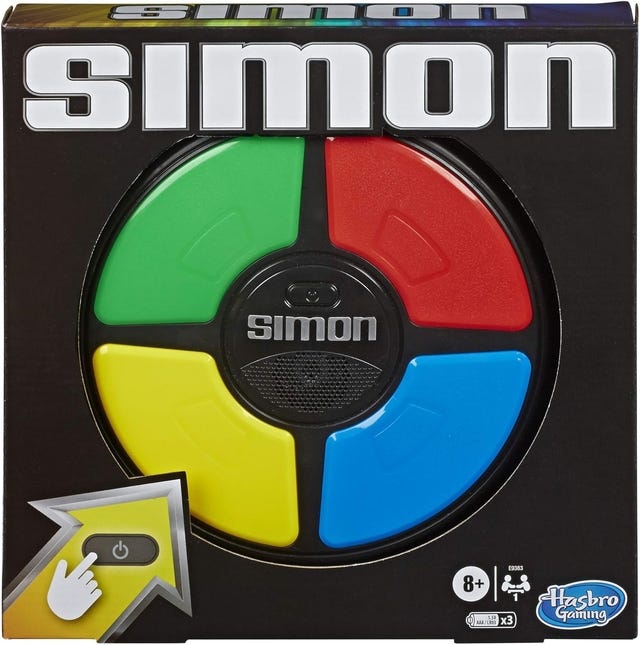Kafka’s Letter to His Father and The Artful Escape
Does psychedelic rock heal childhood trauma? #literature #music #videogame
Welcome back to Artcade, where generational conflict detonates in every direction and the blame always lands squarely on—expectations. Have expectations ever done anything good? One day the evening news might say, “They were so polite,” but we know those fake-reasonable expectations are villains in disguise. Who else can ruin something lovely just by making us want more? And when expectations vanish, don’t we suddenly savor even life’s dull bits? Sorry, expectations, this episode is coming for you. Enjoy the read!
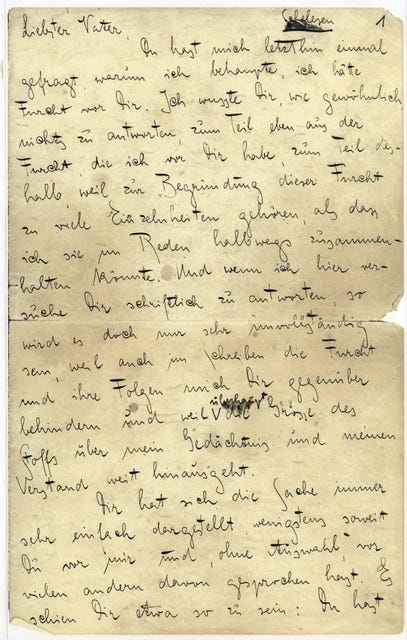
Dearest Father,
You asked me recently why I claim to be afraid of you. I did not know, as usual, how to answer, partly for the very reason that I am afraid of you, partly because an explanation of my fear would require more details than I could even begin to make coherent in speech.
That’s the opening of a long letter Kafka wrote to his father and never sent. Like everything Kafka touched, it’s disarmingly beautiful, and it strikes me as not merely pointless—almost presumptuous—to wedge myself in here and spell out the themes he tackles. Far better to step aside and give him all the room he needs to speak for himself.
I would have been happy to have you as a friend, a boss, an uncle, a grandfather, even indeed (though rather more hesitantly) as a father-in-law. It is only as a father that you were too strong for me, particularly since my brothers died young and my sisters did not come along until much later, so I had to endure the initial conflicts all alone, for which I was far too weak.
[…]
You, Father, are only capable of treating a child with the same means by which you were moulded, with vigour, noise and fits of rage, and in my case you found these means especially appropriate because you wanted to bring me up to be a strong, courageous boy.
[…]
You encouraged me, for example, whenever I saluted or marched well, but I was no budding soldier, or you encouraged me when I could bring myself to eat heartily, especially when I drank beer, or when I managed to sing songs that I did not understand, or to parrot your own favourite clichés back to you, but none of it had a place in my future.
[…]
It was in this state that I was given the freedom to choose my profession. But was I at all able to make use of such freedom? Did I still trust in my ability to enter a real profession? My appreciation of myself was much more dependent on you than on anything else, for instance any external success. Success merely strengthened me for a moment, nothing more, your weight, pulling me down the other way, was always much stronger. I was convinced I would never even get through the first year at school, but I succeeded, I was even awarded a prize; but I would certainly never pass the grammar-school entrance exam, yet again I succeeded; but then I would certainly fail my first year at that school, but no, I did not fail, in fact I kept on succeeding. But this did not give me confidence, on the contrary, I became convinced - and your disapproving face was formal proof of this - that the more I succeeded, the worse my eventual downfall would be.
[…]
In any case, we were so different, and in our differences such a danger to each other that, had anyone wanted to predict how I, the slowly developing child, and you, the fully-grown man, would behave towards one another, they could have presumed that you would simply trample me underfoot until nothing of me remained. Well, that did not happen, what happens in life cannot be predicted, but maybe something even worse happened. In saying this, I ask you not to forget that I in no way find you guilty. Your effect on me was the effect you could not help having, but you should stop considering it some particular perversity on my part that I succumbed to that effect.
Every line of Dearest Father stings just as sharply. If these excerpts hooked you, go read the whole thing.
Franz Kafka (2008) [1953] Dearest Father [nella traduzione di Hannah and Richard Stokes] [Brief an den Vater] [Letteratura] [Epistolare] Oneword Classics LTD, CPI Cox & Wyman, Reading, Berkshire
Hard to grow free when your role models loom large enough to flatten you. Just ask Francis Vendetti, hero of The Artful Escape. He wants to shred electric guitar solos, but his last name screams folk-music sainthood: Uncle Johnson Vendetti is a global legend, his photo plastered across the town’s welcome sign.
Everyone assumes young Francis will pick the acoustic and carry on the dynasty. Even the posters for his debut gig feature Uncle Johnson’s face front and center—Francis is barely a thumbnail.
The night before the show, Francis tumbles into a dream—or maybe not a dream at all—and launches on an interdimensional road trip through the most neon-drenched corners of the cosmos. Self-discovery before sunrise? Not bad. Maybe Kafka just needed an electric guitar.
With a holographic guitar that materializes on demand, you glide across levels in one unbroken solo. The game is laughably easy: failure is almost impossible, and the only real test is a minigame where you have to memorize and repeat a sequence of colors, buttons, or sounds—basically a cosmic spin on Simon. But The Artful Escape makes you feel like your playing reshapes the universe, smashing the conformity hammered in during the opening. I kept jamming even when the game didn’t ask—simply because I could, shredding away as I drifted through some of the most outrageous, glittering vistas ever put on a screen.
If breaking free of templates and stepping into adulthood is your jam, you’ve got two routes: Kafka’s dagger-sharp Dearest Father or the shimmering, lysergic voyage of The Artful Escape. Your call.
Beethoven & Dinosaur (2022) [2021] The Artful Escape [Video game] [Platform] [4½ Hours] (Playstation 5) [Windows, Xbox One/Series X/S, Nintendo Switch, Playstation 4] Annapurna Interactive
Information Desk:
The largely instrumental soundtrack evolves with Francis’s emancipation—genre, tempo, even dimension shift as he finds his voice. Got an hour? It’s on YouTube.
It’s ironic that we can read Kafka’s beautiful works only because someone chose to ignore his wishes. I’m not dropping any links here—consider it a small act of solidarity.
Remember Simon, the “electronic memory game”? Endless clones exist, and the original is—amazingly—still on sale, sporting that retro-futuristic look that would fit right into a low-budget 2001: A Space Odyssey remake.
My last two coins
They don’t need to stand next to us; the Mom-and-Dad voices are crystal clear in our heads. A chorus of expectations crackles like an old gramophone (or a dial-up modem, pick your era): keep up, don’t quit, get a “real” job, be this, be that. Sometimes those voices squeeze choice right out of you. When I feel cornered, I slow down, breathe, and ask my gut what I want. If the world demands a polished symphony, I step onto the balcony and belt a ragged solo. Maybe afterward I’ll march back to the prescribed path—parents are sometimes right, after all—but a burst of rock does everyone good, me and the world included.
Until the next episode, ciao!


